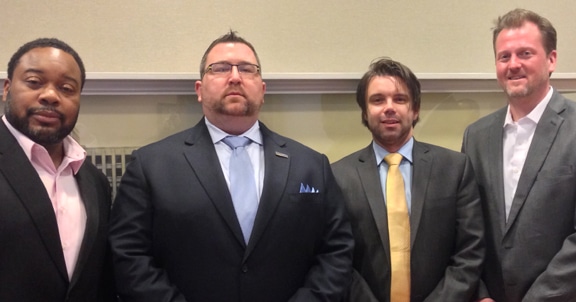Phone: (216) 228-9400
Fax: (216) 228-0411
Email: news_td@smart-union.org
The results of a strike vote authorized in October by SMART Transportation Division President Jeremy Ferguson on the Southeastern Philadelphia Transportation Authority (SEPTA) were finalized yesterday, Nov. 20. SMART-TD members of Local 61 (GCA-STA) in Philadelphia overwhelmingly voted to authorize a potential work action.
This announcement comes after 19 months of contentious negotiations and mediation led by the National Mediation Board with the carrier.
General Chairperson Ray Boyer expressed disappointment with what he described as SEPTA’s bad-faith negotiating.
“SEPTA has implemented a tactic called ‘pattern bargaining’ — blending aspects of the railroad and bus industries. Unfortunately, this strategy has disproportionately affected conductors, leaving us significantly behind our industry peers in terms of compensation,” he said. “In essence, SEPTA is demanding a front-row effort from conductors while offering nosebleed pay. We believe that fair compensation is not just about wages but also about acknowledging the essential role we play in the efficient functioning of SEPTA.”
SMART-TD President Ferguson said that after workers served through a pandemic while receiving wages that trail other regional transit peers that the carrier needs to rethink its approach.
“We have been clear with SEPTA from Day 1 that our men and women are the lowest-paid workforce in the commuter industry and that this negotiation was NOT going to be status quo,” he said. “They continue to stand behind a smoke screen of fancy language their lawyers put together — mixing crafts when it is convenient and clarifying our members are railroaders when it is to their advantage.
“This union is not a business-as-usual organization. Our members spoke loud and clear in their vote. Everyone is scheduled to come back to negotiations late next month, and SEPTA would be wise to recognize the leverage these men and women of Local 61 have authorized. We will not settle for anything less than the respect our members have earned.”
TD Vice President Jamie Modesitt stated that SEPTA rail workers have spoken as a collective voice and SEPTA’s Board should be listening to that voice.
“The collective voice has spoken, and that voice seeks to correct the wage suppression that has been largely ignored over the years. It’s time for SEPTA’s board to correct the wage injustice that has plagued their rail labor force. Ultimately, correcting the wage disparity at SEPTA, by investing in labor, will increase employee morale, establish greater retention of good talent, better recruitment opportunities, and reward the commitment of the hard-working SEPTA men and women who serve the public every day of the week.”
General Chairperson Boyer will work closely with President Ferguson and Vice President Modesitt as this situation develops. SMART-TD will ensure our members and the press are kept up to date as we move ahead.
The union represents 481 members on SEPTA properties.
###
If you are interested in speaking more about the union’s stance on this issue and its negotiations with management on the SEPTA property, we’d be happy to connect you with:
SMART Transportation Division President Jeremy Ferguson
President Jeremy Ferguson, a member of Local 313 in Grand Rapids, Mich., was elected president of SMART’s Transportation Division in 2019.
President Ferguson, an Army veteran, started railroading in 1994 as a conductor on CSX at Grand Rapids, Mich., and was promoted to engineer in 1995. Ferguson headed the recent national rail negotiations for the Union with the nation’s rail carriers.
SMART Transportation Division Vice President Jamie Modesitt
Vice President Jamie C. Modesitt is a member of Local 298, Garrett, IN, was elected to Vice President in 2019, and resides in Saint Augustine, FL. Modesitt serves on the SMART TD National Negotiation Team and serves as a SMART TD Board Member on the National Railroad Adjustment Board’s First Division.


 Twenty two months ago, SMART Transportation Division Local 61 (Philadelphia, Pa.) train service members working at SEPTA ratified their contract from the previous round. Now, for the first time in recent memory, these same members have ratified a new agreement governing the rates of pay and working conditions of conductors and assistant conductors on that property prior to their next scheduled wage increase. A vast majority of those voting, 87 percent, voted to ratify the agreement. The short-term pact runs through June 4, 2017 and includes general wage increases, increased instructor allowance, increased uniform allowance and same sex spousal benefits amongst its provisions.
Twenty two months ago, SMART Transportation Division Local 61 (Philadelphia, Pa.) train service members working at SEPTA ratified their contract from the previous round. Now, for the first time in recent memory, these same members have ratified a new agreement governing the rates of pay and working conditions of conductors and assistant conductors on that property prior to their next scheduled wage increase. A vast majority of those voting, 87 percent, voted to ratify the agreement. The short-term pact runs through June 4, 2017 and includes general wage increases, increased instructor allowance, increased uniform allowance and same sex spousal benefits amongst its provisions. 